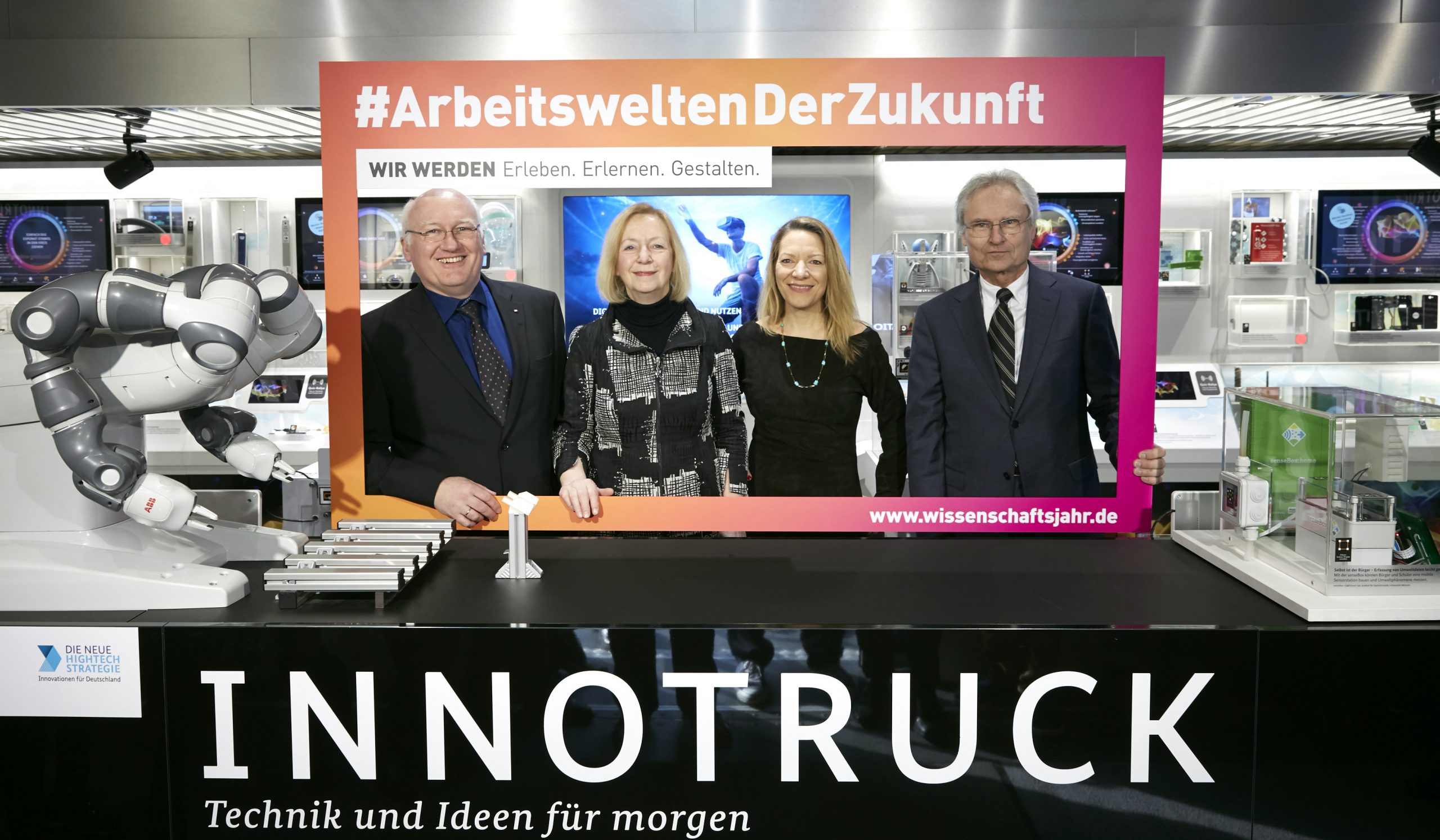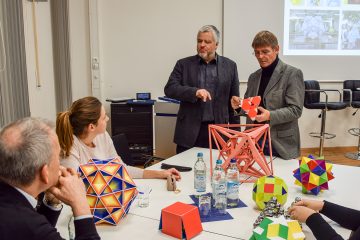Working Life of the Future: Henning Kagermann helps to launch Science Year 2018

Berlin, 19 February 2018
Today, Federal Minister of Education and Research, Johanna Wanka, officially opened Science Year 2018 – Working Life of the Future at the Federal Ministry of Education and Research (BMBF) in Berlin. acatech is advising on the content of the Science Year and will be hosting a number of discussion events. At the launch ceremony, Academy President Henning Kagermann stressed that digitalisation and the workplace of the future should be shaped by people, for people.
How do we want to work in the future? This question is equally pertinent to young people just starting out on their careers and people who are already in the middle of their professional lives. Science Year 2018 – Working Life of the Future aims to stimulate public debate about what good jobs could look like in the future. Speaking at the Science Year launch ceremony, Federal Minister of Education and Research Johanna Wanka said: “We want a future in which people control and steer progress, rather than vice versa. Education and research are key to enabling people to shape the changes in the workplace. We now need to get people ready for the workplace of the future by adapting and enhancing their professional skills. If we can do this, achieving full employment in Germany will become a realistic goal.”
Henning Kagermann described how digitalisation is the driving force behind the changes in the workplace. He argued that we must strive to ensure that these changes lead to greater prosperity and good quality jobs. New, agile forms of collaboration, lifelong learning and company-level worker participation that is geared towards the needs of the future will all play a central role. “We should have more faith in people and involve them in shaping their workplaces as responsible employees.”
Klaus Bengler, President of the Gesellschaft für Arbeitswissenschaft (GfA) and Chair of Ergonomics at the Technical University of Munich, spoke about the future of human-machine interaction: “Ergonomically designed innovative technologies should above all help people in their everyday lives and their work. Cooperation between well designed smart machines and creative people can facilitate new ways of living and working that will open up new horizons on a scale comparable to the leap from the telephone to the smartphone or the horse-drawn carriage to the motor car.”
In the words of Wissenschaft im Dialog (WiD) Steering Committee Chair, Antje Boetius, “Science Years with social themes such as the future of work show how research affects our everyday lives. Visitors to the exhibition ship “MS Wissenschaft” will go on a journey into the future of work and have the opportunity to talk with researchers about what our workplaces might look like in the future.”
acatech supports Science Year 2018
The Science Years are a joint initiative of the Federal Ministry of Education and Research (BMBF) and Wissenschaft im Dialog (WiD). acatech Presidents Henning Kagermann and Dieter Spath are members of the Advisory Committee for Science Year 2018. The Academy is also a partner of WiD’s “Wissenschaft kontrovers” discussion series and dialogue platform, and will be hosting the first public discussion in Magdeburg on 13 March. acatech’s Academy Day “Arbeit mit Zukunft” (Jobs with a Future) on 14 March 2018 will also be devoted to the theme of Science Year 2018. On 2 May, the Academy will host a discussion in which Henning Kagermann will be joined by Chief Human Resources Officer at Deutsche Telekom, Christian P. Illek, and member of the ver.di Executive Board, Lothar Schröder. Together with the Jacobs Foundation, the Academy has established an “HR Working Group” composed of researchers and HR directors. It also runs a series of workshops on the “future of industrial work” in conjunction with the Hans Böckler Foundation.
Further information




